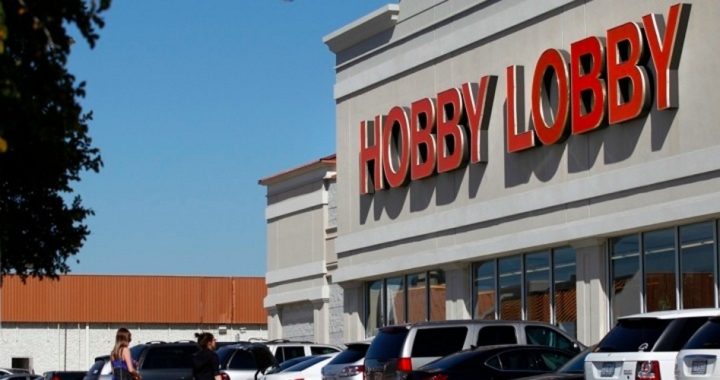
Christian retailer Hobby Lobby has won its second legal decision in a month in its ongoing battle against the Department of Health and Human Services (HHS) contraception mandate, which requires employers to provide their employees with health insurance that includes free contraception — including drugs that can cause abortion.
On July 19 a federal judge in Oklahoma City granted the retailer and its sister business, the Mardel Christian book chain, a preliminary injunction preventing the federal government from enforcing the mandate against the businesses. The ruling follows on the heels of a landmark decision by the Tenth Circuit Court of Appeals, which ruled June 27 that Hobby Lobby’s owners are free to follow their religious convictions under the First Amendment, and are likely to win their case against the mandate.
Hobby Lobby’s owners, led by company founder and CEO David Green, filed suit to stop the mandate in September 2011, arguing that forcing them to provide their thousands of employees with contraceptives like the RU-486 “abortion pill” would cause them to violate their convictions that life begins at conception. The company faced as much as $1.3 million in fines per day for their refusal to knuckle under to the mandate.
“By being required to make a choice between sacrificing our faith or paying millions of dollars in fines, we essentially must choose which poison pill to swallow,” Green said as the Becket Fund for Religious Liberty, which is representing the company in the case, announced the suit last year. “We simply cannot abandon our religious beliefs to comply with this mandate.”
“The tide has turned against the HHS mandate,” declared Kyle Duncan, general counsel with the Becket Fund, following the July 19 ruling by federal judge Joe Heaton, who wrote in his decision that there is “a substantial public interest in ensuring that no individual or corporation has their legs cut out from under them while these difficult issues are resolved.”
Heaton had originally refused to grant the company an injunction, but the decision by the Tenth Circuit Court of Appeals prompted him to reconsider. The appeals court ruled that Hobby Lobby and Mardel had demonstrated the probability that their religious-freedom argument would prevail in the lawsuit.
Lori Windham, senior counsel for the Becket Fund, said in an interview that Heaton’s ruling demonstrates that “companies can be protected from the mandate and can continue to exercise their religious beliefs in the way they run their businesses.”
On its website Hobby Lobby explains that one of the main purposes of the business is to honor God “by operating the company in a manner consistent with Biblical principles.” The company’s over 500 retail outlets are closed on Sundays, and its owners contribute generously to ministries and outreaches that seek “to share the Good News of Jesus Christ to all the world,” the Hobby Lobby website reads.
While churches and select faith-based religious non-profits have been exempted from the mandate, countless religious based non-profits and private companies owned by Christians would be required to follow the mandate, requiring a violation of deeply held beliefs in the sanctity of life.
Thus far, according to the Becket Fund, more than 60 federal lawsuits have been filed against the HHS mandate, and courts have granted injunctions to nearly two dozen for-profit corporations while refusing to issue injunctions or restraining orders for seven companies.
Photo: AP Images



